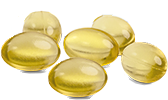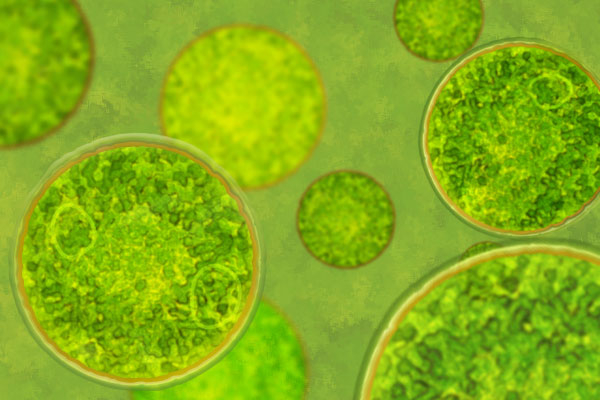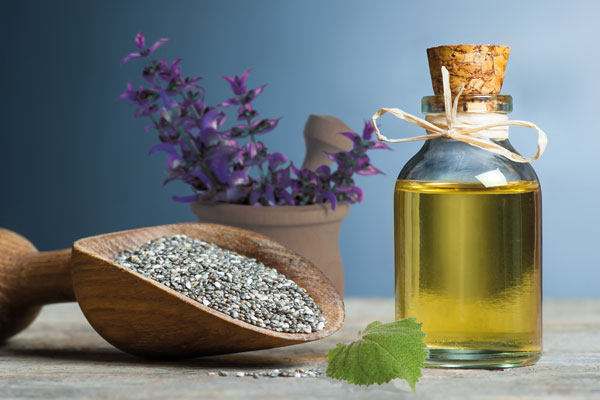Plant-based Omega 3 fatty acids
- Omega 3 fatty acids from microalgae and chia seeds
- Phytocaps are made from fermented corn, potato and peas
- The capsules are without cellulose / hydroxypropylmethylcellulose / HPMC
- With the essential fatty acids EPA and DHA, which contribute to the maintenance of normal heart1 and brain function2 as well as normal vision2
- Contains ALA3 which contributes to the maintenance of normal cholesterol levels
- Suitable for vegetarians and vegans
- Manufactured under Danish pharmaceutical control
| 2 capsules contain | % RDA* | ||
|---|---|---|---|
| Omega 3 fatty acids | 562 mg | - | |
| of which | |||
| EPA1 | 62 mg | - | |
| DHA2 | 250 mg | - | |
| ALA3 | 250 mg | - |
1) The beneficial effect is achieved with a daily intake of 250 mg EPA and DHA.
2) The beneficial effect is achieved with a daily intake of 250 mg of DHA
3) The beneficial effect is achieved with a daily intake of 2 g of ALA.
Product Facts
Directions
2 capsules daily for adults and children aged 11 and over.
The recommended daily dose must not be exceeded.
Dietary supplements should not replace a varied diet and a healthy lifestyle.
Storage
Dark, dry and at room temperature.
Keep out of reach of young children.
Ingredients
Oil with a high content of DHA and EPA produced from the microalgae Schizochytrium sp.
Chia oil (Salvia hispanica).
Glazing agent: Hydroxypropyl starch.
Humectant: Vegetable Glycerol.
Stabilizers: Agar, Carrageenan, Pectin (apple).
Purified water.
Humectant: Sorbitol.
Green tea powder.
Beetroot powder.
What is Omega 3 Phyto?
 Originally called Omega 3 Green. Omega 3 Phyto is an alternative to fish oil. The preparation consists of Pharma Nord's own developed vegetable phytocaps, each of which contains 281 mg of vegetable-derived essential omega 3 fatty acids. The fatty acids come from microalgae, which contribute docosahexaenoic acid (DHA) and eicosapentaenoic acid (EPA), as well as from Chia oil, which contributes alpha-linolenic acid (ALA).
Originally called Omega 3 Green. Omega 3 Phyto is an alternative to fish oil. The preparation consists of Pharma Nord's own developed vegetable phytocaps, each of which contains 281 mg of vegetable-derived essential omega 3 fatty acids. The fatty acids come from microalgae, which contribute docosahexaenoic acid (DHA) and eicosapentaenoic acid (EPA), as well as from Chia oil, which contributes alpha-linolenic acid (ALA).
About the fatty acids in Omega 3 Phyto
Omega 3 fatty acids are essential, which means vital, just like vitamins. If we opt out of fish in our diets, it is therefore necessary to get these fatty acids in other ways. Algae and seed oil are suitable here.
About the algae oil
 The microalgae Schizochytrium is a single-celled alga that feeds on organic matter from fallen leaves and other windfalls in coastal areas of the tropics. The algae, which originates in mangrove forests, does not require light. The algae are able to produce the omega 3 fatty acids EPA and DHA from the plant matter that they convert. The algae oil provides the same health benefits as fish oil. The EPA and DHA found in fish are accumulated from the algae that the fish have eaten.
The microalgae Schizochytrium is a single-celled alga that feeds on organic matter from fallen leaves and other windfalls in coastal areas of the tropics. The algae, which originates in mangrove forests, does not require light. The algae are able to produce the omega 3 fatty acids EPA and DHA from the plant matter that they convert. The algae oil provides the same health benefits as fish oil. The EPA and DHA found in fish are accumulated from the algae that the fish have eaten.
The algae oil is produced in the EU. It is non-GMO, gluten-free and nonallergenic. It is extracted by means of fermentation followed by an extraction without the use of solvents, after which the oil is purified. This process takes place in an environmentally friendly process.
To limit the risk of oxidation, the oil goes through a patented process which preserves the oil's nutritional properties, its taste, smell, color and appearance. The patented technology includes an exclusive mixture of antioxidants that work synergistically.
This technology guarantees an ultra-stable oil that preserves the nutritional value of the oil without the taste of fish and without fish burps.
About the Chia oil
 Chia oil is produced by mechanical pressing of oily Chia seeds. The chia plant, which is called Salvia hispanica in Latin, belongs to the mint family and originates originally from southern Mexico and northern Guatemala. Under optimal conditions, it can grow well over a meter high. The plant has violet-white flowers, and its small, oval, grey-brown seeds are high in fatty acids. The oil's content of the omega 3 fatty acid alpha-linolenic acid (ALA) is over 60%. Due to the high fatty acid content, the extraction of the oil requires no solvents. The oil is therefore cold-pressed and subsequently filtered to remove impurities.
Chia oil is produced by mechanical pressing of oily Chia seeds. The chia plant, which is called Salvia hispanica in Latin, belongs to the mint family and originates originally from southern Mexico and northern Guatemala. Under optimal conditions, it can grow well over a meter high. The plant has violet-white flowers, and its small, oval, grey-brown seeds are high in fatty acids. The oil's content of the omega 3 fatty acid alpha-linolenic acid (ALA) is over 60%. Due to the high fatty acid content, the extraction of the oil requires no solvents. The oil is therefore cold-pressed and subsequently filtered to remove impurities.
The body has some capacity to convert ALA into the fatty acids eicosapentaenoic acid (EPA) and docosahexaenoic acid (DHA) using enzymes.
Official claims
The European Food Safety Authority (EFSA) has evaluated the evidence behind the omega-3 fatty acids and has acknowledged the following claims:
- EPA* and DHA* contribute to normal heart function
* Min. 250 mg of EPA / DHA per day - DHA* helps to maintain normal vision
* Min. 250 mg of DHA per day - DHA* contributes to the maintenance of normal brain function
* Min. 250 mg of DHA per day - Intake of docosahexaenoic acid (DHA) contributes to normal development of vision in infants up to 12 months of age* (Art. 14)
* The beneficial effect is obtained with a daily intake of 100 mg of DHA - Maternal DHA intake contributes to normal development of the brain of the fetus and of breastfed infants ** (Art. 14)
** Info to pregnant and lactating woman: The beneficial effect is obtained with a daily intake of 200 mg of DHA in addition to the recommended daily intake of omega-3 fatty acids for adults, i.e.,: 250 mg of DHA and eicosapentaenoic acid (EPA). The claim can be used only for food which provides a daily intake of at least 200 mg of DHA - Maternal intake of docosahexaenoic acid (DHA) contributes to normal brain development in the fetus and infants that are breastfed *** (Art. 14)
*** Info to pregnant and lactating woman: The beneficial effect is obtained with a daily intake of 200 mg of DHA in addition to the recommended daily intake of omega-3 fatty acids for adults, i.e.,: 250 mg of DHA and eicosapentaenoic acid (EPA). The claim can be used only for food which provides a daily intake of at least 200 mg of DHA - ALA* contributes to maintaining normal cholesterol levels
* Min. 2 g of ALA daily

